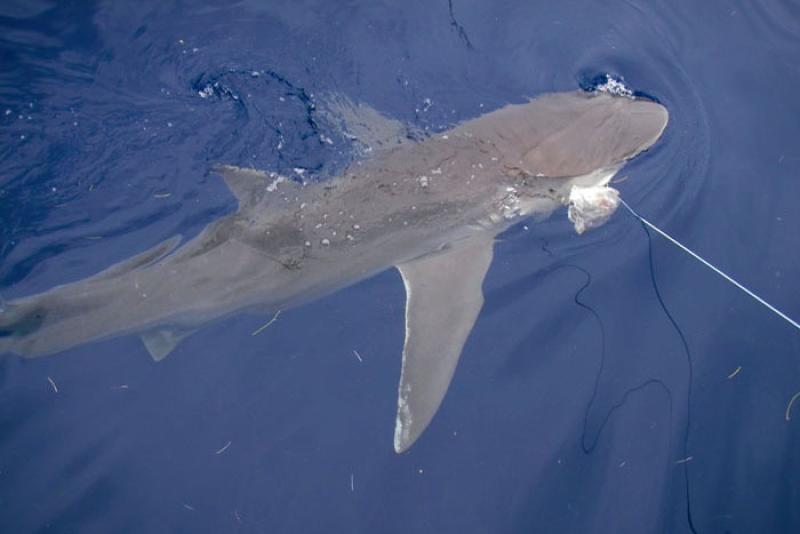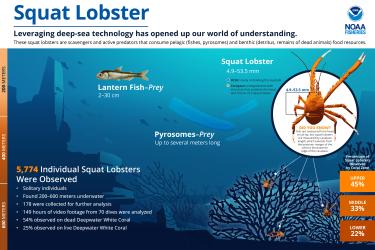It's shark week, and so today we have two shark experts on the line. And they each approach sharks from very different perspectives. One is a NOAA biologist, and the other is a commercial shark fishermen. But they do have one very important trait in common: they both want shark populations to be healthy. And they're working together to help make that happen.
John Carlson is a NOAA biologist who studies sharks out of the NOAA lab in Panama City, Florida. He's working on a research project that's testing a special type of hook—it's called a circle hook—to see if it offers inadvertently hooked sharks a better chance to survive.
Commercial shark fishermen fish with longlines, and a single longline can have hundreds of hooks attached to it. Although they try to avoid areas where prohibited species are biting, fishermen can't control entirely who ends up on their line. If they bring up a prohibited species such as a dusky shark, whose population is considered small and vulnerable, they release the shark back into the water. Likewise, if they bring up a number of sharks that puts them over their quota for the season, they have to release the excess sharks, regardless of species.
"But if the sharks are already dead," asked Carlson, "what's the point?"
That's where the research on circle hooks comes in. Circle hooks tend to hook sharks in the mouth. The standard J-hook may be more likely to hook a shark in the gut, injuring the animal and reducing its chances of survival. But there's very little solid data one way or the other on how much circle hooks would help. This research project aims to answer that question.
To test the hooks, NOAA has contracted a bunch of shark fishermen to participate in a cooperative research study. Joe Klosterman, a commercial fisherman out of Fort Pierce, Florida, is one of them. This season, Klosterman is fishing for sharks just as he normally would, but he's using both circle hooks and J-hooks in equal numbers, and he’s releasing all the sharks that survive on the hook. In addition, he’s carrying a fishery observer on his boat. The observer collects scientific data, including the condition of hooked sharks, and attaches a satellite tracking tag to a subset of the released sharks. The tracking data will reveal whether a released shark survived to live another day or died soon after being released.
"I hope to keep the J-hook," said Klosterman. He's always fished with J-hooks, and he thinks that circle hooks will not increase survivability. But Klosterman, who has an associate’s degree in oceanography, understands the value of a controlled experiment and is willing to be persuaded if the data says otherwise.
The jury is still out on whether circle hooks will help—scientists won’t begin analyzing the data until it’s all in at the end of the current fishing season. But in the meantime, this research is already paying off. NOAA is benefiting from Klosterman's more than four decades of experience on the water, and Klosterman is making sure that his voice is heard by the scientists.
Scientists and fishermen don’t always see eye to eye. But both want shark populations to be healthy today and into the future. By working together, they’re helping to create a sustainable future for sharks.

